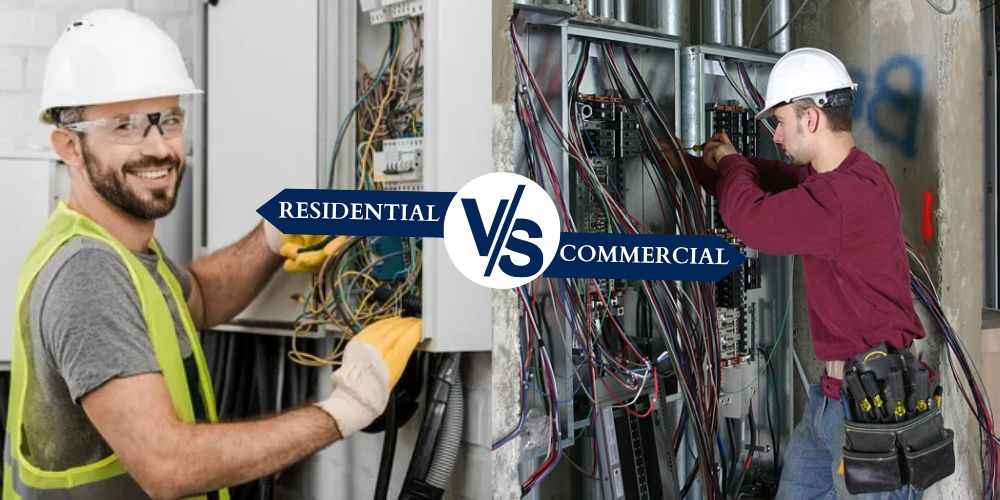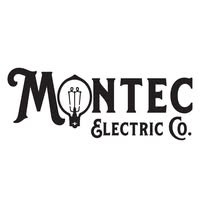What is the Difference Between a Residential and Commercial Electrician?

Strong 8k brings an ultra-HD IPTV experience to your living room and your pocket.
When it comes to electrical work, electricians typically specialize in one of two key areas: residential and commercial. Understanding the difference between commercial and residential electricians is essential, as the skills, experience, and tools required for each job vary greatly. Whether you’re looking to get some work done at home or need electrical assistance for a business, knowing which type of electrician to call can make all the difference in ensuring a safe, efficient, and successful job.
Residential Electrician: What Do They Do?
A residential electrician specializes in electrical work for homes and residential properties. They typically handle electrical systems in single-family homes, apartments, and sometimes multi-unit buildings. Their tasks include installing electrical wiring, outlets, and light fixtures, as well as troubleshooting and repairing electrical problems.
Residential electricians are skilled in understanding how home electrical systems operate and are familiar with local electrical codes specific to private residences. Some of their more common jobs include:
Wiring new homes: Running electrical lines and installing outlets, switches, and circuit panels.
Upgrading electrical systems: Replacing old, outdated wiring or installing new circuit breakers to handle the load of modern electronics.
Repairing faults: Fixing problems with fuses, circuit breakers, or malfunctioning outlets or switches.
Installing home appliances: Connecting stoves, dishwashers, or even home theater systems to your home’s electrical supply.
Residential electricians' work typically involves less complex systems than that of commercial electricians, which means they can often complete tasks faster and with fewer specialized tools. They may also work on remodeling projects or add new lighting to enhance a home’s interior design.
Commercial Electrician: What Do They Do?
On the other hand, a commercial electrician is trained to work in larger, more complex environments such as office buildings, factories, warehouses, and retail spaces. Commercial electrical systems are far more intricate than residential ones because of the higher demand for power, the variety of equipment that needs to be powered, and the size of the space.
Commercial Electricians Handle A Wide Range Of Tasks That Can Include:
Installing power systems: Setting up complex electrical grids and ensuring the electrical systems can handle a significant load for large facilities.
Troubleshooting and repairs: Commercial electricians are skilled at identifying faults in intricate systems, which often include industrial equipment and large electrical circuits.
Upgrading commercial facilities: Installing new lighting, outlets, and circuits to meet the needs of a growing business.
Ensuring safety compliance: All installations must meet local codes and regulations, including adherence to workplace safety standards.
Working with large machinery: Commercial electricians often work with heavy machinery, conveyor belts, or HVAC systems, which require specialized knowledge and experience.
Their work environment is much more dynamic and fast-paced than residential electricians. In many cases, commercial electricians work under tight deadlines, ensuring that electrical systems function smoothly so that businesses can continue operating without interruption.
Key Differences Between a Residential and Commercial Electrician
Scope of Work: Residential electricians mainly work on single-family homes, apartments, and smaller-scale jobs, while commercial electricians work on much larger buildings, including offices, factories, and retail spaces. Commercial electrical systems often have more complex wiring and a higher load capacity than residential ones.
Skills and Expertise: Both residential and commercial electricians have to complete an apprenticeship program and obtain a license. However, commercial electricians typically need additional training to handle the specialized systems in commercial properties. This can include knowledge of industrial machinery or high-voltage equipment.
Tools and Equipment: Commercial electricians often use larger and more specialized tools to handle the more complex needs of commercial buildings. For instance, they may use large cable pullers, conduit benders, and specialized testing equipment to assess the condition of electrical systems.
Job Site Environment: Residential electricians typically work in quieter, smaller environments with less risk of injury. In contrast, commercial electricians often work in busy office buildings or large industrial settings where there’s a greater risk of accidents due to the size of the facility and the equipment used.
Electrical Codes and Regulations: Both electricians need to follow electrical codes, but commercial electricians must be familiar with the more complex and stringent safety codes required in industrial and commercial environments. This is especially important when dealing with machinery and the high-voltage systems that commercial spaces rely on.
Which Electrician Do You Need?
Understanding the differences between a residential electrician and a commercial electrician can help you make the right choice when hiring an expert for your electrical needs. If you need work done in your home, such as fixing an outlet, installing a ceiling fan, or upgrading your electrical system, a residential electrician is the right choice. On the other hand, if you manage a business or need work done in a larger facility, a commercial electrician has the experience and tools necessary to handle larger, more complex electrical systems.
Both types of electricians are vital for the smooth operation of electrical systems, but the work they perform is suited to different types of properties and needs. Understanding these differences can ensure that your project is handled by the right professional for the job.
Note: IndiBlogHub features both user-submitted and editorial content. We do not verify third-party contributions. Read our Disclaimer and Privacy Policyfor details.


